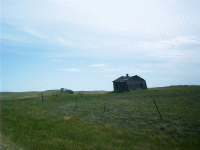 |
There is a stream of Western
ideas. It meanders. Our great thinkers are tributaries. Their
contributions each push the stream a little out of its way. Sigmund
Freud's Psychoanalysis, Albert Einstein's Relativity,
Rachel Carson's Silent Spring, and Alvin Toffler's Future
Shock were less scientific theories than philosophies elegantly
expressed, which, because they were accessible by the popular
imagination, penetrated the current of American thought and
subverted it. |
